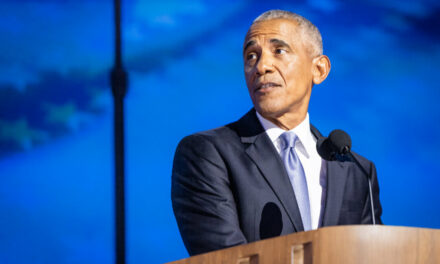We support our Publishers and Content Creators. You can view this story on their website by CLICKING HERE.
Meant to encourage compromise in the Senate, the filibuster requires most legislation to pass a 60-vote threshold to proceed to a final vote.
President-elect Donald Trump said that the Senate should not abolish the filibuster amid the GOP having control of both houses of Congress starting in January 2025—a reversal from his call during his presidency for it to be gone.
The filibuster requires most legislation to pass a 60-vote threshold to proceed to a final vote. The aim is to encourage bipartisanship.
Democrats have called for eliminating the filibuster to allow for numerous legislative initiatives, including expanding the number of seats on the Supreme Court. This has been in response to rulings from the court—such as overturning the landmark abortion case Roe v. Wade—that the party has decried.
“The filibuster is a mechanism that you’re not going to totally overturn every single thing that was ever done,” said Trump.
“So I have respect for the filibuster.”
When asked again if he would want it to remain in place, Trump said, “Yes.”
In March 2021, however, Trump warned against Democrats wanting to end the filibuster.
“This essential tool encourages compromise and helps ensure that all Americans, not just those whose party is in the majority, have a voice in legislation,” he said.
“The filibuster in the Senate is safe for now.
“And while I don’t have high hopes for Democrats’ changing their tune on the Supreme Court, perhaps being in the minority in this next Congress will at least remind Democrats of the importance of protecting minority rights no matter what party is in power—and ensure that the next time Democrats are in charge, they’re not quite so eager to tear down this important safeguard.
Sen. Tammy Duckworth (D-Ill.) agreed.
In 2013, then-Senate Majority Leader Harry Reid (D-Nev.) ended the filibuster for executive branch nominees and nominees for the federal bench except the Supreme Court.
Four years later, McConnell, as majority leader, nuked it for Supreme Court nominees when he failed to get enough Democrats to advance Neil Gorsuch’s nomination to the nation’s highest court. Gorsuch was confirmed, 54–45.

 Conservative
Conservative  Search
Search Trending
Trending Current News
Current News 







